Confronting fear: A reflection on transformations
I find myself struggling with conflicting reactions.
May that awareness be a gateway to transformation.
Crying out for transformation
Fear begets violence, violence begets fear. But why do we fear? What is it we fear? And how does that fear drive us to such destructive lengths?
This is an age-old story ingrained deeply in the historical and spiritual legacies of our ancestors’ pasts found in cultures and societies around the world. We fear change. We fear difference. We fear the unknown. We fear what we cannot understand. And these fears can lead to resistance, both peaceful and violent, justified and corrupted. Yet embracing change, difference, and the unknown are all essential facets to transformation—from individual growth and species metamorphosis, to social revolution and total systems restructuring. And our world is desperately crying out for transformation at every level and scale. Our future as a thriving ecosystem depends on it.
Granted, transformation is not inherently good. Which is why interrogating those fears and working collectively toward social and ecological justice must be at the heart of the transformations we pursue together. This is no doubt challenging work with tremendous responsibility and implications, the likes of which are difficult to anticipate. It requires us to simultaneously peer deeply into our own fears—and the entangled narratives and underlying values, beliefs, and perceptions that drive those—as well as to critically question how our fears are both being exploited by and are reinforcing the very systemic structures (or should I say structural violence?) that depend on inequality and injustice to survive.
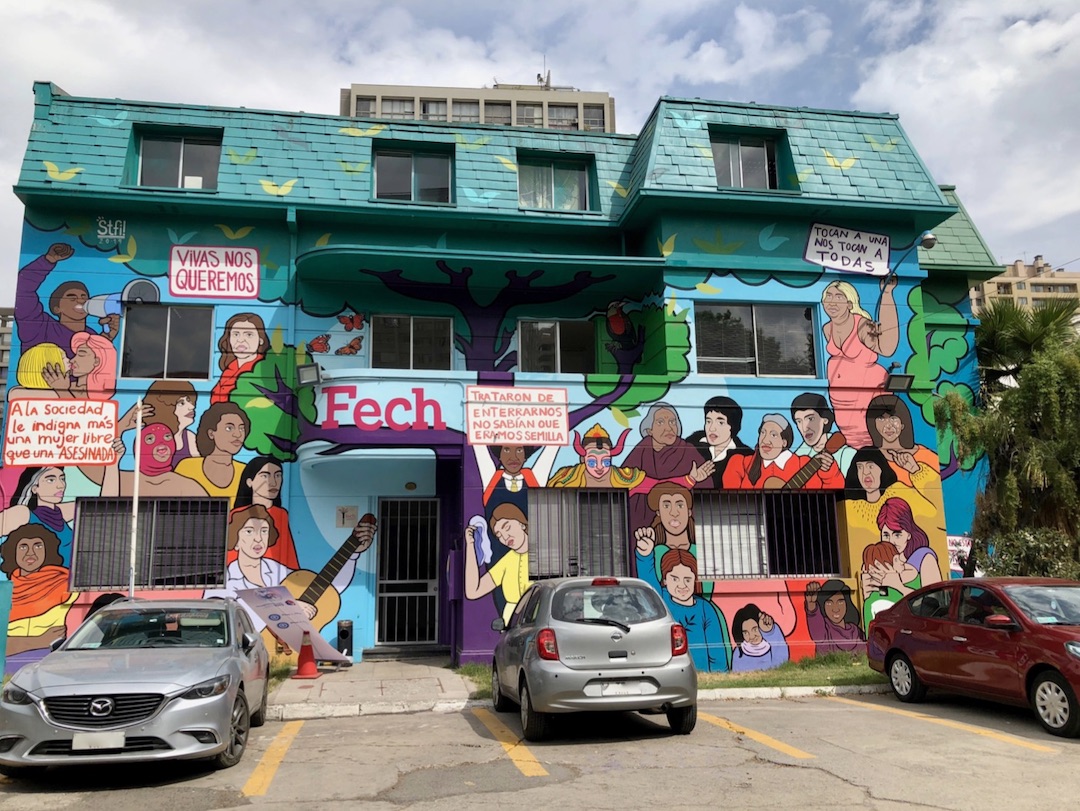
Vivas Nos Queremos | We Want Ourselves Alive (top)
Vive Hoy | Live Today (bottom)
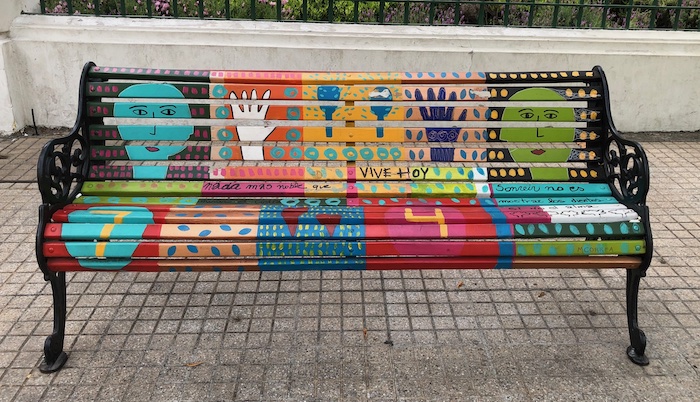
Conflicting realities—Harm, privilege and the fight for justice
What is unfolding at this very moment in Chile and many countries around the world (the USA included) is a representation of how fear and resistance to change from those in power—a perpetuation of a status quo rife with inequality—can rapidly lead to an escalation of violence and destruction that disproportionately impacts those most vulnerable. It is a vicious cycle indeed, the gravity of which I cannot fully grasp as an outsider to Chile. However, as it has been explained to me by local Chileans, what started as peaceful protesting against rising costs of metro/public transit services by Chilean youth has quickly grown into an uprising of those frustrated by being left behind and exploited by a government despite increasing country wealth and development. In the process, a fear-driven militaristic reaction by the government has instigated dictator-era approaches to silencing the outcries of the marginalized and forgotten. This evokes even fiercer and more widespread responses by the people that has simultaneously been co-opted by composers of chaos leading to increased risk of harm and more draconian measures by those in power. And so the cycle continues, unknown yet as to when or how it will end.
As a foreign traveler caught up in the unraveling in Chile last week while there for the amazing Transformations 2019 conference , I find myself struggling with the conflicting reactions I felt, much of which stemmed from my own largely selfish fears not knowing what was happening and how it might negatively impact me, my colleagues, and the local Chileans.
My fear of harm was entangled with a heavy guilt for the privilege I had. That privilege can be seen in many ways, most profoundly in my ability to escape Chile unscathed and return to my “normal” life in the states whilst local Chileans will be facing the repercussions of the entrenched injustice and continued protesting against it for who knows how long. I share this not to criticize those who may also have felt fear, but rather to encourage us all to own that fear and privilege and channel it positively towards increasing our awareness of how our own countries, or perhaps our very presence there this past week, may have contributed directly or indirectly to the inequality and unrest that Chile is currently or has historically experienced. May that awareness be a gateway to alternative action pathways for transformation.
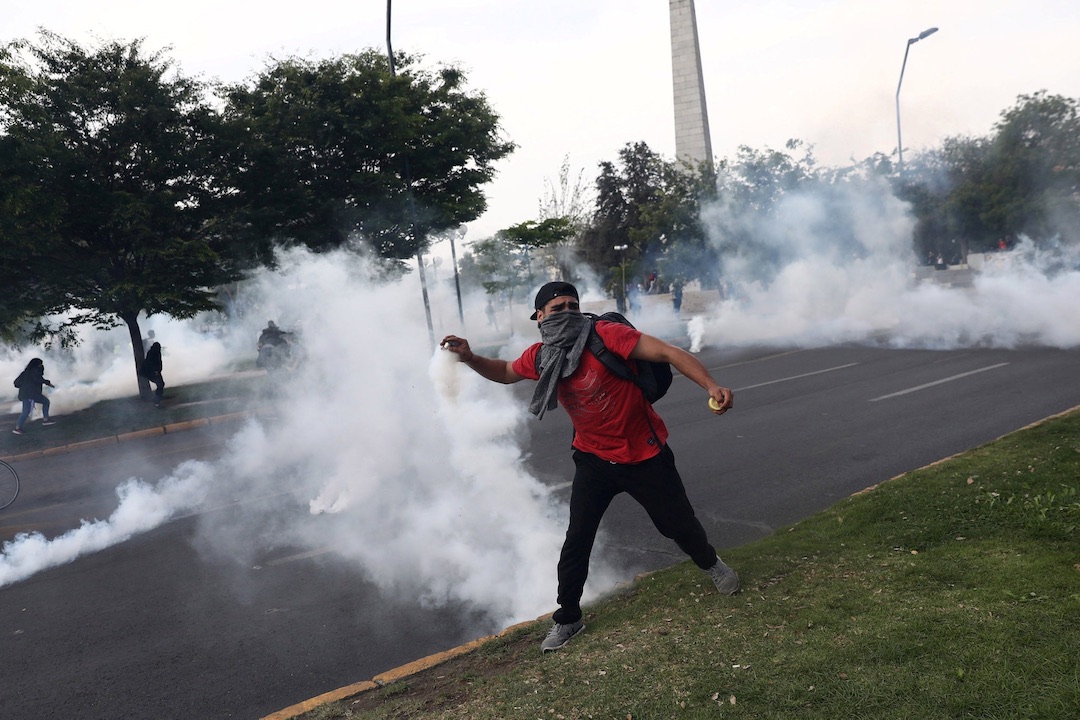
Protestor returning tear gas canister
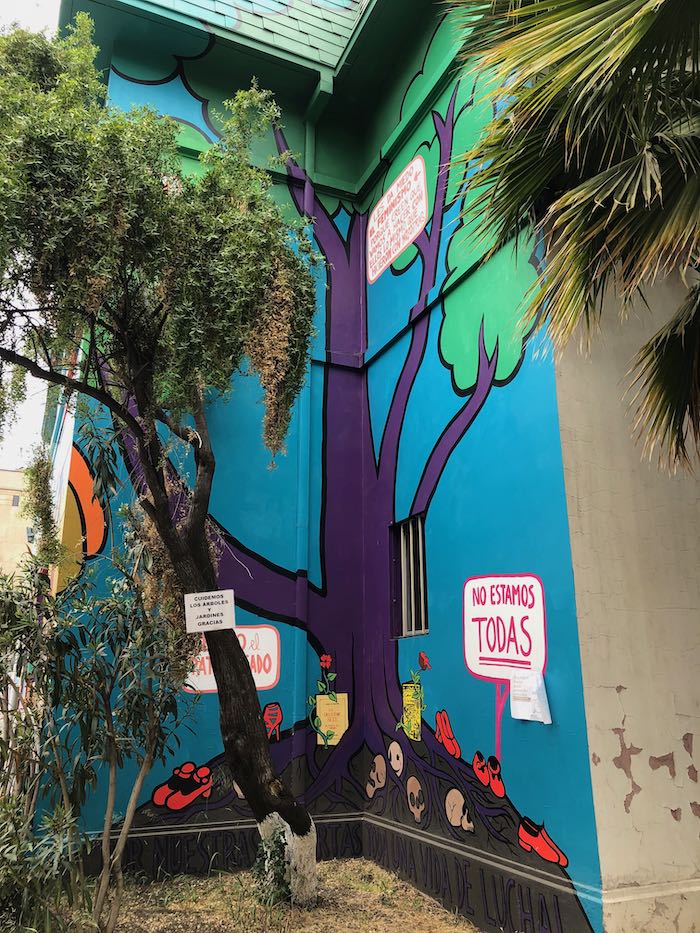
no estamos todas
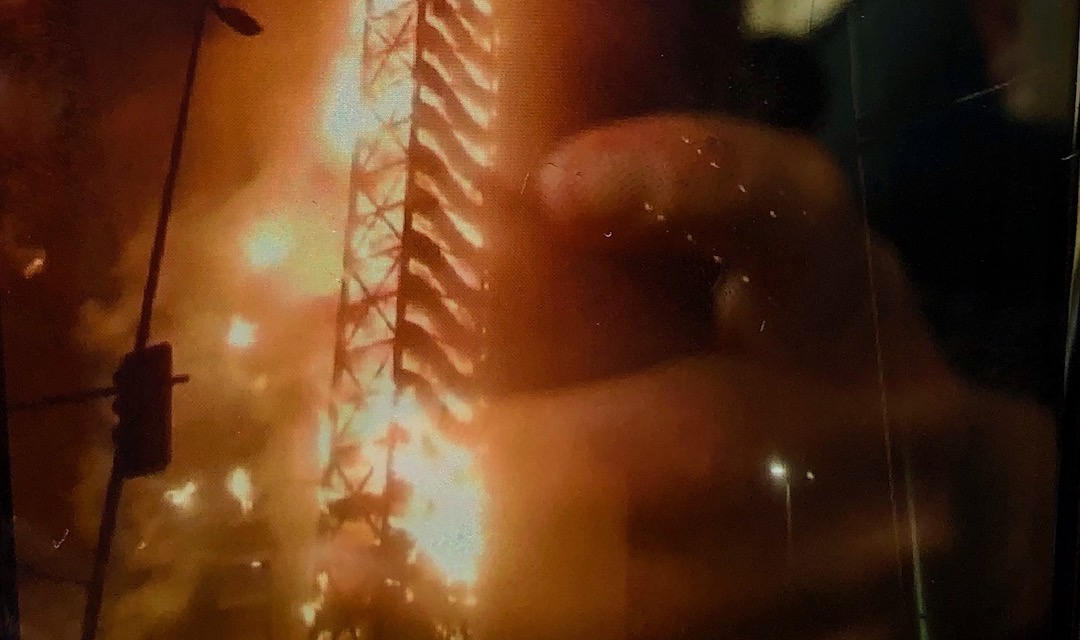
Chile protests while Santiago curfew annouced
Healing—An imperfect process of transformation
Having seen and felt this reckoning firsthand, even if for a brief period, my soul aches for Chile and its people. I feel more compelled than ever to question what responsibility I/we have moving forward to Chile and similar countries stricken with inequality. We cannot unsee what we have seen.
But what is occurring in Chile is not my story to tell and that is not what this reflection is meant to do. Rather, this is my humble attempt at beginning to stand in solidarity with those fighting peacefully and justly for justice in Chile and around the world. I seek instead to elevate those voices of the unheard and bear witness to the story of those who live and breathe these unjust realities every day. In so doing, I strive to use my privileged space to raise the critical consciousness of myself and others in how we are all implicated in the growing global inequalities and erosion of social and ecological wellbeing.
What is happening “out there” is every bit a part of what is happening in our own back yards and until we recognize this we will only remain complicit. Through this reflection I also hope to begin to make sense of the chaos, sadness, and loss contrasted by the inspiration, beauty, and restoration I experienced while in Chile this past week. It is my own imperfect approach at both inhabiting and healing the trauma whilst catalyzing the co-creation of alternative interconnected narratives and pathways for transformation grounded in justice and wellbeing for people and planet.
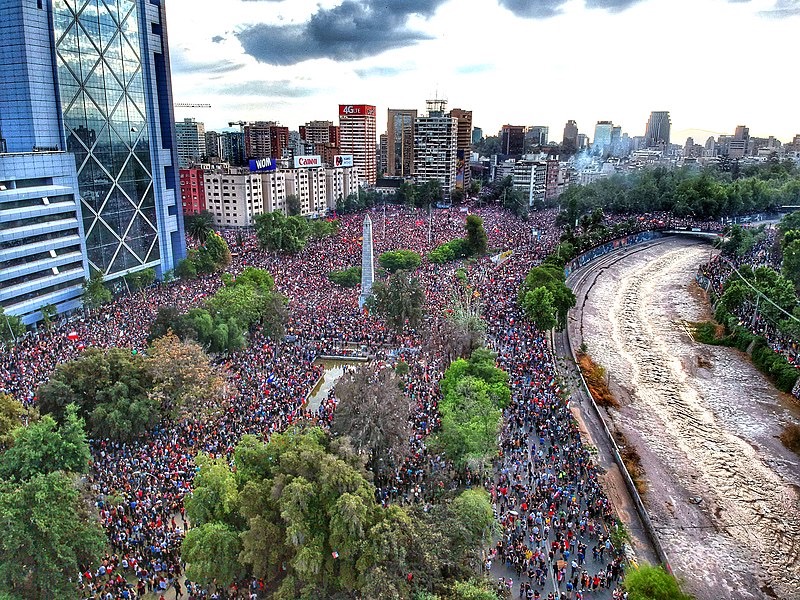
Thousands in Santiago demanding more investment in public education, healthcare and pensions (top)
La Lucha Del Pasado Inspira El Presente | The Struggle Of The Past Inspires The Present (bottom)

Pathways forward—Reclaiming our interconnectedness
So how/where do we begin? Is it courage we need? Hope? Resilience? Guidance? Love? FREEDOM??? Are these not the makings of power in the form of transformative collective capacity? From where is this power derived?
Perhaps the missing piece is our interconnectedness. I have recently been inspired by the work of The People’s Supper, co-founded by Lennon Flowers and Rev. Jen Bailey through a beautiful, emergent partnership between The Dinner Party, Faith Matters Network, and Hollaback!. At the foundation of The People’s Supper is the belief that “Social change moves at the speed of relationships. Relationships move at the speed of trust.” (Learn more about The People’s Supper at https://thepeoplessupper.org/).
For too long we have allowed ourselves to become disconnected from our relationships with one another and the very environment of which we are but one part of a nourishing whole. And this disjointedness has awoken in us a deep-seated fear grounded in a sense of loss, of difference, and of insecurity and scarcity that is driven forward by the desire for control.
An ethic of control is embedded within the individualism, competition and inequality that defines our modern day global socio-economic and political systems. These forces have pushed us to cling tightly to fear and led us to hide from, ignore, or revolt against the need to nurture transformation within ourselves, society, and the planet.
But as many of my fellow community members from the Transformations 2019 conference might agree, restoring that interconnectedness requires an openness to diversity, uncertainty, and ambiguity. It requires a willingness to “uncover” the paradoxes that exist within and around us and embrace our vulnerabilities as power, as the core of what connects us to one another and to the world. Taking our cue from The People’s Supper, we must ask ourselves, “what needs healing here?”, and let that be our guide for catalyzing the interwoven internal (personal, group) and external (institutional and societal) transformations that our needed.
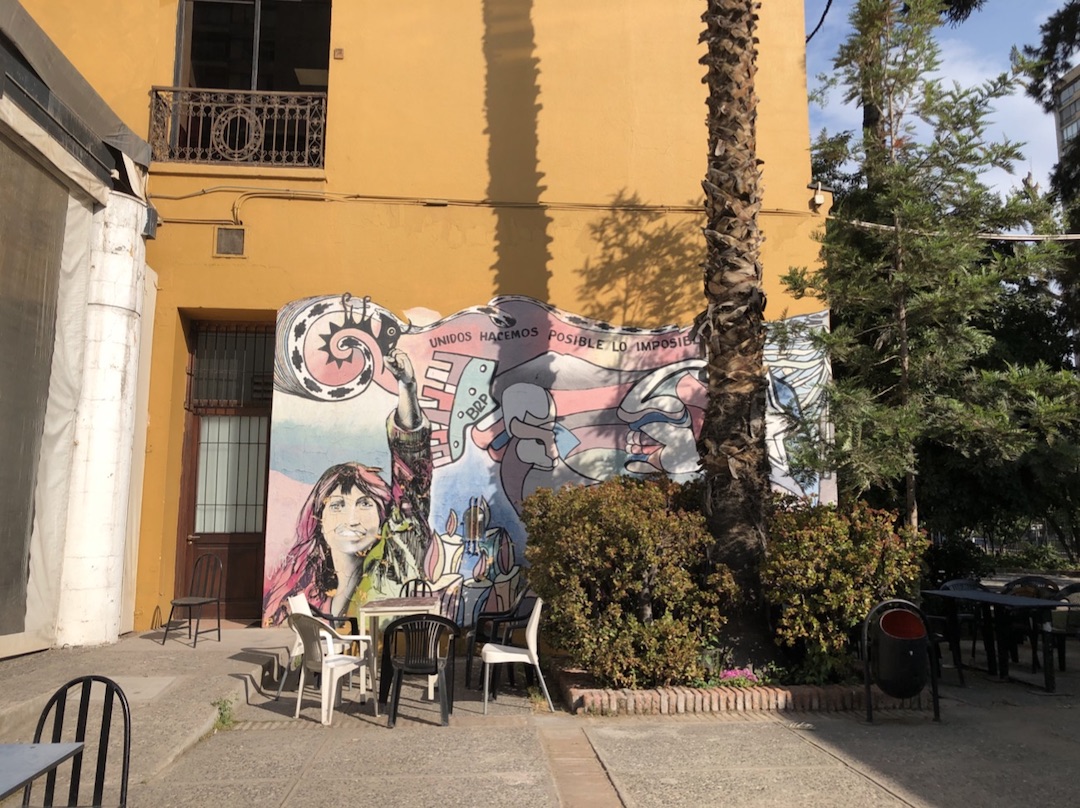
Unidos hacemos posible lo imposible | United we make the impossible possible (top)
Unidos En La Gloria Y En La Muerte | United In Glory And Death (bottom)
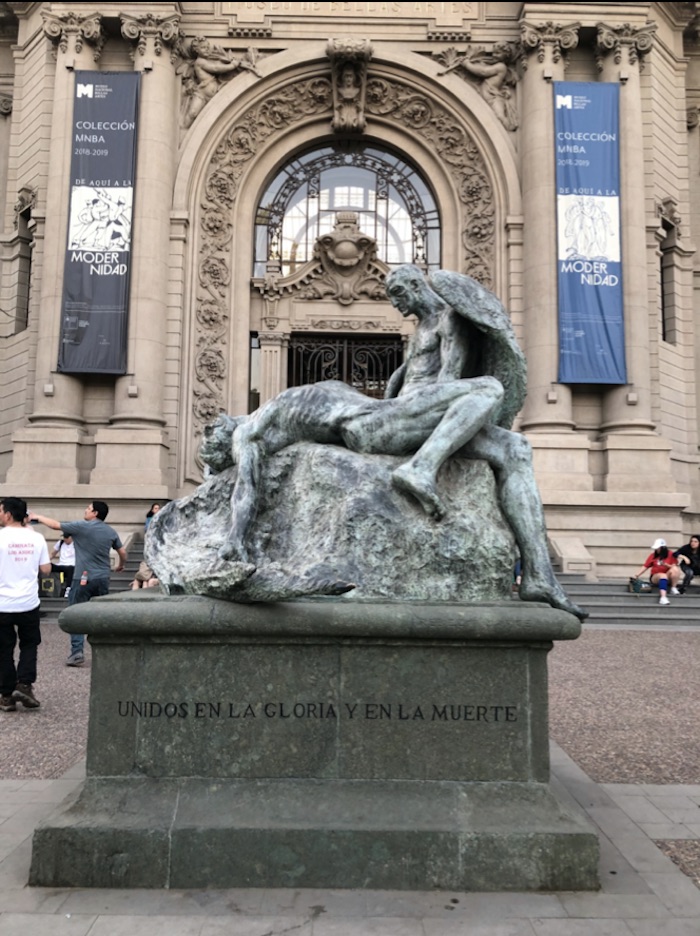
Invitation to join us in this collective journey
In short, we are perfectly imperfect and cannot thrive alone. We are called to walk this continuous journey together along our interconnected pathways of “brave space” (https://thepeoplessupper.org/resources). For in that brave space our collective transformative capacity flourishes. We invite you to join us in this journey.
Read “An Invitation to Brave Space”
By Micky ScottBey Jones
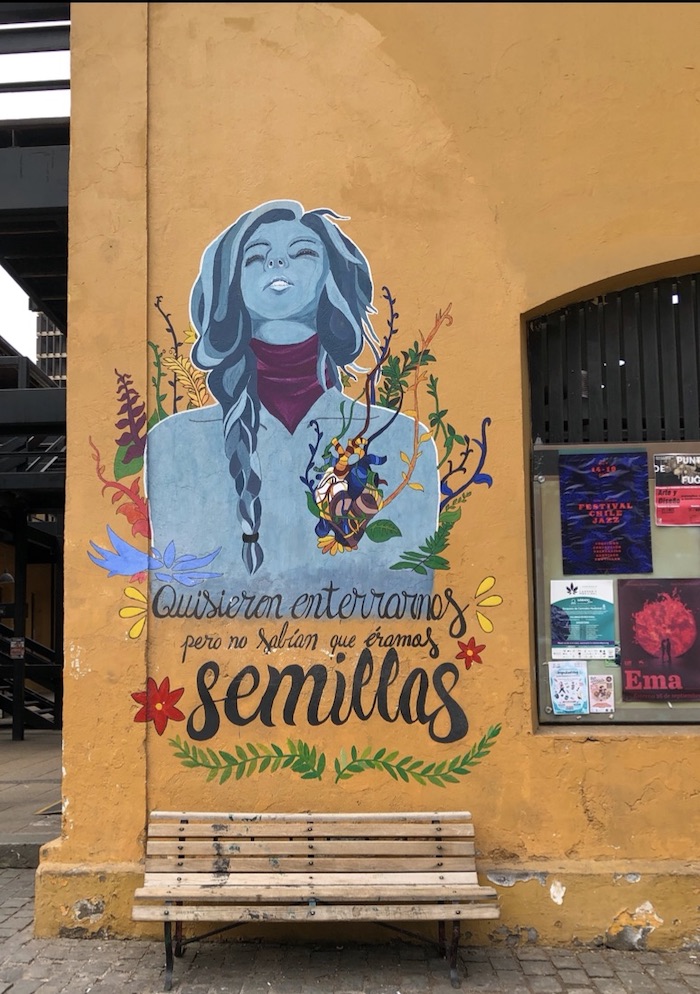
Quisieron Enterrarnos Pero No Sabian Que Eramos Semillas | They Wanted To Bury Us But They Didn’t Know We Were Seeds
Resources
Referenced resources
- The People’s Supper, co-founded by Lennon Flowers and Rev. Jen Bailey, is here.
- Original posting of An Invitation to Brave Space poem by Micky ScottBey Jones was here (note: this no longer appears to be an active site, but we kept the link in case that is just temporarily disabled due to updating).
- Transformations 2019 is part of a series of conferences (every two years) to support transformative shifts—in people, societies and systems, and our ecological environment—to address climate, contemporary society and environmental challenges, and work toward social and ecological justice. The fourth (2019) conference was in Santiago last week. More information on the conference and its featured sessions and speakers can be found (here).
**Copyrights reserved for all external resources.
Chilean orchestra gives a breathtaking open air performance of “The people united will never be defeated” in Santiago. Source Patricia Carnorno Lanfranco (facebook)
Additional Resources on Situation in Chile
NOTE from author: I debated back and forth between including additional resources on the current conflict in Chile. However, because this is a rapidly unfolding situation with many different perspectives involved, I would be remiss to feature any particular article or media report here. However, I STRONGLY encourage all readers to PLEASE seek out reputable resources, particularly local resources embodying a multitude of perspectives from Chileans experiencing the realities on the ground. If you would like some guidance on connecting with local Chileans or determining reputable resources, we may be able to identify some options through our Transformations 2019 conference community.
Other posts in this series include: Chile 🔥🔥🔥transformation points and Think, are you thinking? Transformations 2019
Photo credits
All photos above by Julianna Gwiszcz (reuse: Creative Commons BY-NC-ND) except: La Lucha by Festina Lentívaldi, (Be) Benevolution (Creative Commons BY-NC 3.0 US); Thousands in Santiago by Hugo Morales (wikicommons); and, Chilean orchestra Patricia Carnorono Lanfranco (facebook).
Visual narrative
Contrasting/Paradoxical Narratives From Chile
What Does It Mean To Hold Both? by Julianna Gwiszcz, MSSW, Phd
In the Transformations 2019 conference session I co-facilitated with Bruce Goldstein, Gail Francis, and Glenn Page called “Change Agents: Our Work Within Transformation Systems” we discussed the ways in which we experience and navigate paradox personally and in our transformations work.
This paradox theme has since been very apparent in the situation in Chile. I wanted to highlight some of those paradoxical narratives through a bit of visual storytelling above. So much of the media is sensationalizing violence and placing blame on protestors whilst downplaying the injustice and violence perpetrated against the Chilean people. Rather than focus solely on stories of suffering and hate, I think it is important to remember and celebrate the alternative narratives of beauty, hope and undeniable resilience living and breathing amidst the destruction. These qualities are what have and will continue to transform Chile for the better.
Please click through the narrative gallery above for these contrasting stories.
I should also note that in reviewing the photos I took while in Chile last week, it was clear that I tended to explicitly seek out the peaceful, hopeful, and beautiful elements of Santiago and Chilean culture. Perhaps this is yet another sign of the privilege I had to remove myself from the heart of the storm even while still in Santiago, which was also my own coping mechanism? Or perhaps it indicates the gratitude and hope I have for Chile and its remarkable, inspiring people? Maybe both? Either way, I want to thank my co-contributor for allowing me to include some of his photography so as to better capture some of the contrasting narratives present currently in Chile.
Note: For the purposes of protecting identities, I (with permissions from the original photographer) chose to blur some faces or crop out parts of photos that could be deemed as easily identifiable. This is in no way meant to demean or diminish the brave contributions of the protestors and photographers who captured their fight for justice in action, nor the peaceful actions of local Chileans who were not caught up in the fray but, rather, to ethically error on the side of caution.
Photos and text by Julianna Gwiszcz, MSSW, Phd (reuse: Creative Commons BY-NC-ND) with additional photos primarily Festina Lentívaldi, (Be) Benevolution (Creative Commons BY-NC 3.0 US). Plus, please note two exceptions in the visual narrative slide show above. Please consult the original photographer (see photo credit) if you would like additional information.
6 Comments
Subscribe
Get the newsletter (story summary).
Recent posts
Coming home
We belong to and are of the Earth but we bypass our sense of belonging. I missed this leaving home and my story mirrors our larger, human-wide journey. What do I need to come home?
Soulprint: Peak nature
Extraordinary: a paradigm shift by 147 governments and the UN endorsing “humans and nature are spiritually connected.” Invitation: to build on this for yourself and all of us.
We are in a portal
I’ve a deep knowing: we humans have shifted. That’s disorienting so here’s 3 handrails to help: this is sourced in bliss; lubricated by peak oil; agreed by UN & 147 nations; and, all with dragonflies!



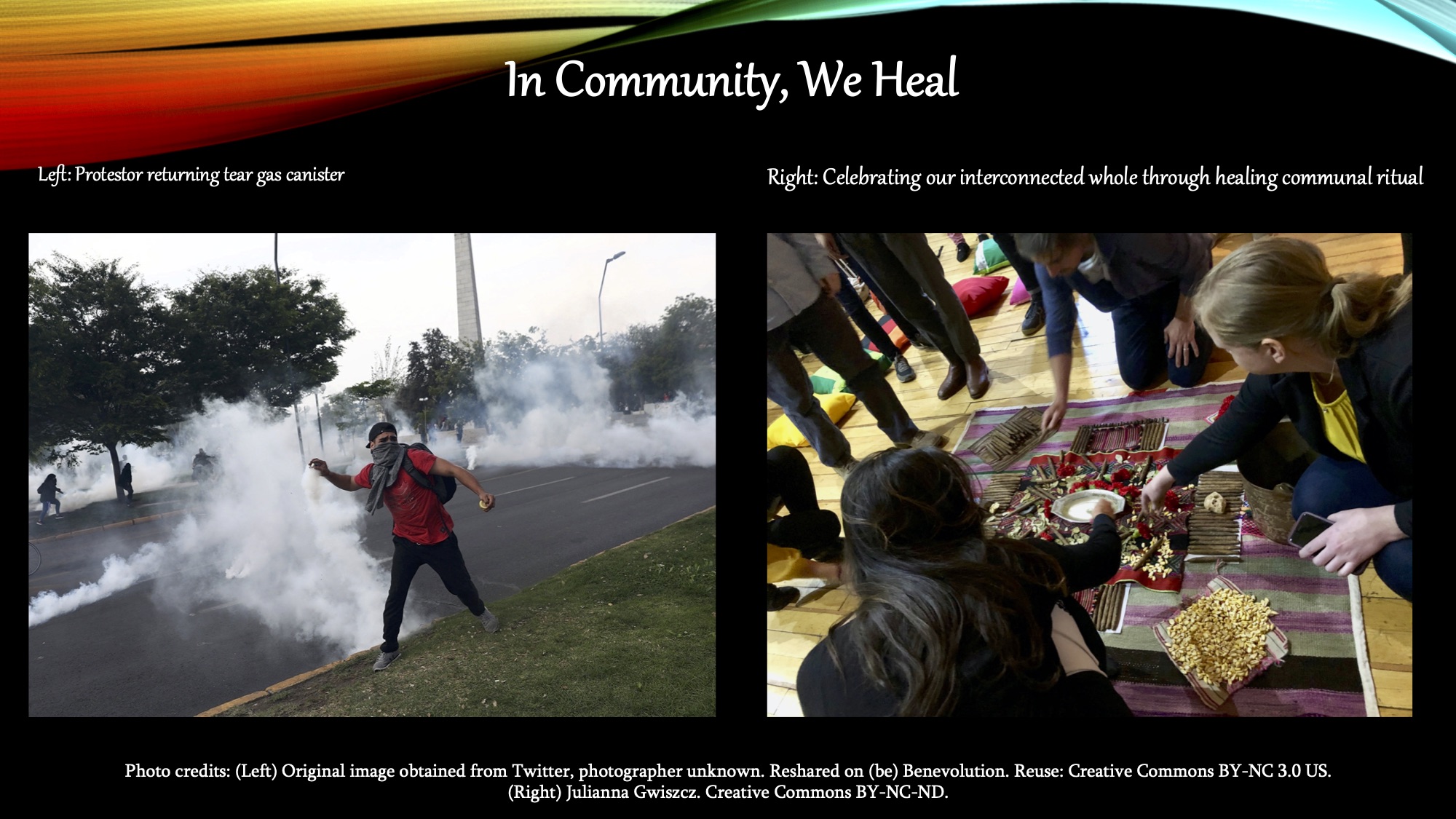










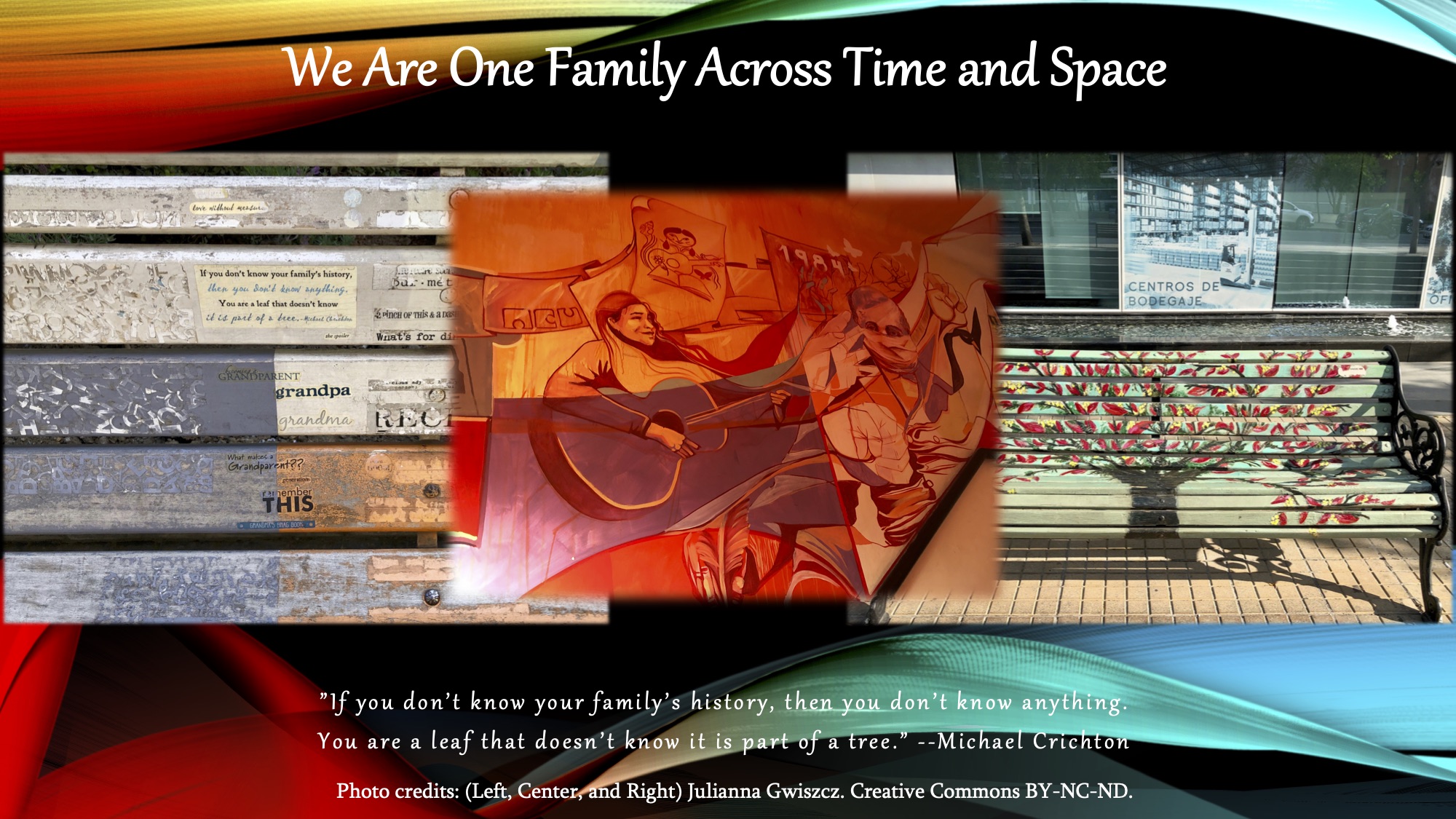


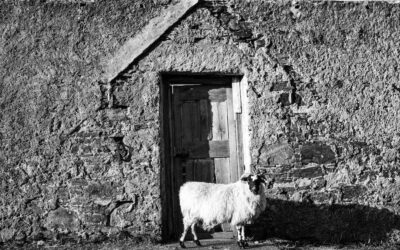

The very reason a small by design school called Child Side School was set up in 2002 in Western Australia around all that you speak about around equal dignity and connectiveness. Motivated by growing up in Africa and the first schools set up in Reggio Emelia by a group of tenacious transformative mothers after the second world war we began a journey to raise our children differently and created a school to notice what we have, to notice each other and to notice the world. We hear you the people and the children of Chile.
Thank you Leonie! I will have to check out the Child Side School for sure. It sounds restorative to say the least.
We shall teach children about Brave Space rather than safe space. This is such an important and very powerful distinction. Thankyou for giving us the language to define and describe what we do.
Thank you for those kind words but I must say the real thanks goes to Micky ScottBey Jones who wrote the poem “Invitation to Brave Space” and the founders of the People’s Supper for introducing me to that beautiful concept. I am blessed to be able to embody it and share it here and through my work with others in sustainable wellbeing and development.
Check out the schools in Reggio Emilia Italy, Big Picture Learning USA and The Big History Project and the Developmental Relationship Framework which have all informed our work at Child Side School. Schools can be amazing places of transformation.
Excellent! I really appreciate these resources and will absolutely look into them more deeply. All the best.